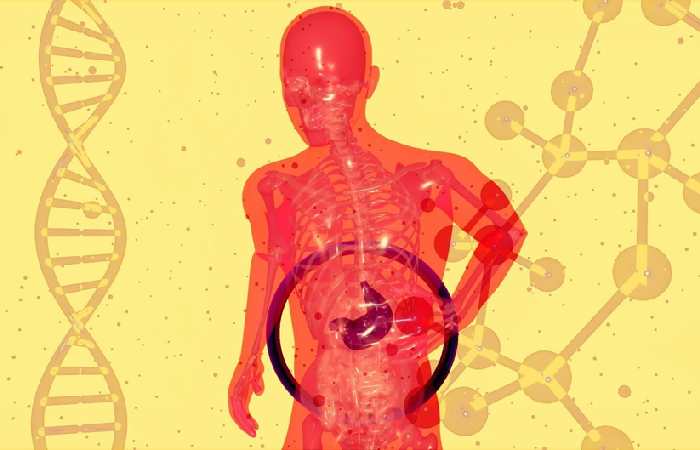Our gut and brain are more connected than we often realize. The intricate relationship between these two systems plays a crucial role in our overall well-being, influencing everything from our mood to our digestion. By understanding this connection, we can adopt simple habits that enhance both mental health and digestive function.
Everyday practices make the difference: build meals around fiber and fermented foods, hydrate consistently, sleep well, manage stress, and move your body daily. Be intentional about stimulants and the products you interact with online, encounters with retailers like bb cigarettes are a good reminder to choose routines that support mood. Join us as we delve into the basics of gut–brain health and discover strategies to boost how we feel, mentally and physically.
Understanding Gut–Brain Connection
The gut-brain connection plays a crucial role in our mental and physical health. This complex network links our digestive system and brain, influencing behaviors, emotions, and gut functions.
What Is the Gut–Brain Axis?
The gut-brain axis refers to the bi-directional communication system between the gut and the brain. This involves neural pathways, hormones, and immunological signals. The vagus nerve serves as a primary communication channel, transmitting information about gut health directly to the brain. Research shows that gut microbiota, the diverse microorganisms in our intestines, also impact brain function and mood regulation. For instance, specific bacterial strains can produce neurotransmitters, like serotonin, which significantly affect our emotional states. Understanding this relationship enables us to make informed choices that benefit our mood and digestion.
Importance of Gut Health for Mood
Gut health directly impacts our mood through several mechanisms. When the gut microbiota thrives, it produces essential metabolites and neurotransmitters that support mental health. For instance, about 90% of serotonin, a key mood-regulating neurotransmitter, originates in the gut. Imbalances in gut bacteria can lead to dysbiosis, contributing to anxiety and depression. Additionally, inflammatory responses from an unhealthy gut can exacerbate mood disorders. By maintaining gut health through balanced diets, regular exercise, and stress management, we promote not only optimal digestive function but also improved emotional wellness.
Everyday Habits for a Healthy Gut
Establishing everyday habits that support a healthy gut leads to improved mood and digestion. Simple adjustments can significantly enhance our well-being.
Balanced Diet and Nutrient Intake
Maintaining a balanced diet and adequate nutrient intake promotes a thriving gut microbiota. Include diverse foods like fruits, vegetables, whole grains, lean proteins, and healthy fats. These food categories provide essential vitamins, minerals, and fiber that support gut health. Fermented foods like yogurt, sauerkraut, and kimchi introduce beneficial probiotics, which enhance gut flora. Aim for at least 25 grams of fiber daily to foster digestion. Avoid excessive processed foods and sugars, as they can disrupt gut bacteria. Regularly eating a nutritious diet encourages optimal function of the gut-brain axis and positively influences mood.
Regular Physical Activity
Engaging in regular physical activity supports gut health and emotional well-being. Aim for at least 150 minutes of moderate exercise weekly, which can include walking, cycling, or swimming. Physical activity stimulates beneficial gut bacteria, improves digestion, and increases serotonin production, positively affecting mood. Incorporating strength training into routines enhances overall fitness and metabolic health. Even short bouts of exercise, such as taking stairs or brisk walking, contribute to mental clarity and reduced stress. Committing to a consistent exercise routine fosters a harmonious connection between our gut and brain.
Mindfulness and Stress Management

Mindfulness and stress management play crucial roles in supporting our gut health and mood. Practicing these techniques can help us maintain a balanced gut-brain connection.
Impact of Stress on Digestion
Stress negatively impacts digestion by triggering the body’s fight-or-flight response. This response diverts blood and energy away from our digestive system, leading to slower digestion and discomfort. Research indicates that chronic stress contributes to gastrointestinal disorders such as irritable bowel syndrome (IBS) and can disrupt gut microbiota balance. Elevated cortisol levels from stress can also reduce serotonin production, a neurotransmitter essential for mood regulation. By managing stress effectively, we can enhance both our digestive health and emotional well-being.
Techniques for Mindfulness
Implementing mindfulness techniques can significantly improve our gut health and overall mood. Meditation reduces stress and promotes relaxation, encouraging a healthier digestive process. Practicing mindful eating helps us slow down during meals, enhancing our connection to hunger and satiety cues. Deep breathing exercises activate the parasympathetic nervous system, promoting better digestion and reducing anxiety. Engaging in yoga combines physical movement with breath control, further supporting gut health and emotional balance. By incorporating these mindfulness practices into our daily routines, we can foster a resilient gut-brain connection.
Probiotics and Gut Health
Probiotics play a vital role in maintaining gut health and can significantly impact our mood. These live microorganisms contribute to a balanced gut microbiota, which supports both digestive function and emotional well-being.
Benefits of Probiotics for Mood
Probiotics enhance mood through several mechanisms. They produce neurotransmitters, such as serotonin, that regulate emotions. Studies indicate that strains like Lactobacillus and Bifidobacterium may help alleviate symptoms of anxiety and depression. Probiotics also reduce inflammation in the gut, which can negatively affect brain function. Furthermore, they promote a healthier gut barrier, preventing toxins from entering the bloodstream and contributing to improved mental clarity and emotional stability. By integrating probiotics into our diets, we can harness these benefits for mental health.
Sources of Probiotics
Probiotics are found in various foods and supplements. Fermented foods, such as yogurt, kefir, sauerkraut, kimchi, and miso, contain beneficial bacterial strains that support gut health. Additionally, prebiotic foods like garlic, onions, and bananas feed these probiotics, enhancing their effectiveness. We can also consider probiotic supplements, which provide targeted strains for specific health needs. When selecting sources, we should aim for options containing live and active cultures to ensure maximum benefits. For more in-depth insights, check out resources from Harvard Health.
